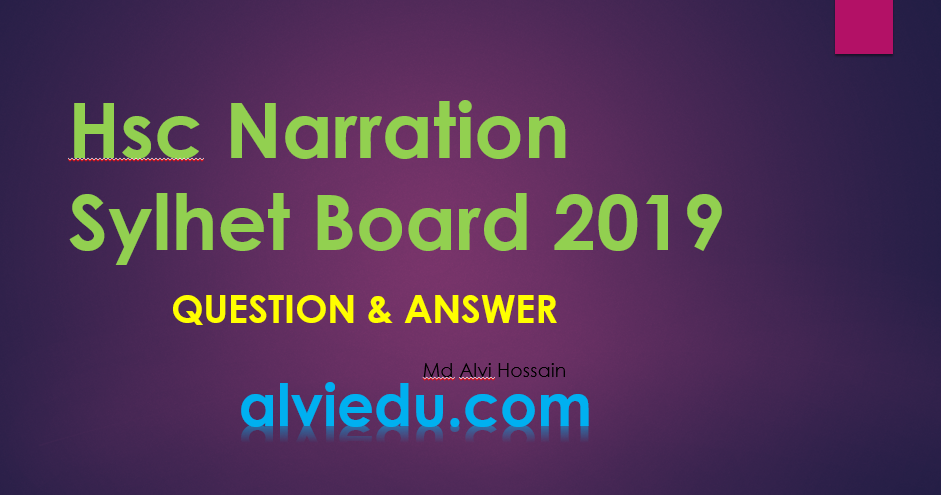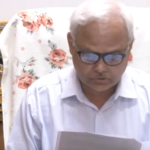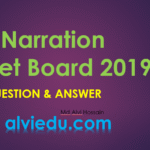Hsc Narration Sylhet Board 2019 question & answer…Hsc Narration Sylhet Board 2019 question & answer…
Passage narration is the process of converting a dialogue or conversation written in direct speech into indirect speech, maintaining correct tense, pronoun, and structure changes to ensure grammatical accuracy.
visit us our youtube dailystory0.5
Narration Question
“Why did you stop me? I didn’t do anything wrong, did I?” asked Riyad.
“You were driving too fast,” said the traffic sergeant, giving him a glare.
“Now! Show me your driving license.”
Narration Answer
Riyad asked the traffic sergeant why he had stopped him. He also said that he hadn’t done anything wrong and asked if he had. The traffic sergeant, giving him a glare, said that he had been driving too fast. Then he ordered him to show his driving license.
Read more Hsc narration dhaka board 2024 question and answer
Explanation (with Grammar Rules and Breakdown):
In this passage, we are converting direct speech to indirect speech. This is a common task in English grammar, especially for HSC exams. Let’s understand how each sentence was transformed and why:
1. Riyad’s Question:
“Why did you stop me? I didn’t do anything wrong, did I?”
→ Riyad asked the traffic sergeant why he had stopped him. He also said that he hadn’t done anything wrong and asked if he had.
- Tense change: “Did you stop” becomes “he had stopped” (past perfect).
- Pronoun change: “you” becomes “he” (the sergeant), “me” becomes “him” (Riyad).
- Tag question: “did I?” becomes “if he had” (indirect yes/no question).
- Tone: Riyad was defending himself, so it’s presented with a mix of question and explanation.
2. Sergeant’s Reply:
“You were driving too fast,” said the traffic sergeant, giving him a glare.
→ The traffic sergeant, giving him a glare, said that he had been driving too fast.
- Tense change: “were driving” becomes “had been driving” (past perfect continuous).
- Pronoun change: “you” becomes “he” (referring to Riyad).
- Action added: “giving him a glare” is a present participle phrase describing how the speech was delivered. We keep it as is.
3. Sergeant’s Order:
“Now! Show me your driving license.”
→ Then he ordered him to show his driving license.
- Imperative sentence: When changing commands or orders into indirect speech, we use “ordered” + infinitive (to show).
- Time word: “Now” is changed to “then” in indirect speech.
- Pronoun change: “me” becomes “him.”
Final Full Answer (Complete in Indirect Speech):
Riyad asked the traffic sergeant why he had stopped him. He also said that he hadn’t done anything wrong and asked if he had. The traffic sergeant, giving him a glare, said that he had been driving too fast. Then he ordered him to show his driving license.
Tips for Narration Conversion:
- Tense Changes:
- Present → Past
- Past → Past Perfect
- Present Perfect → Past Perfect
- Pronoun Adjustments:
- Change according to the speaker and listener.
- Time/Place Adjustments:
- “Now” → “Then”
- “Today” → “That day”
- “Here” → “There”
- Question Sentences:
- Use asked with why/what/if/whether, and change the structure to a statement (no question mark).
- Commands/Orders:
- Use told/ordered/asked + to + base verb (e.g., to show, to go).
- Narration is the grammatical process of converting direct speech into indirect speech. It involves changing the tense, pronouns, and time expressions while maintaining the original meaning. Narration helps report someone’s words without quoting them directly. It is essential in both spoken and written English for clear and formal communication.










